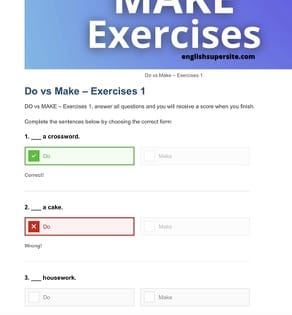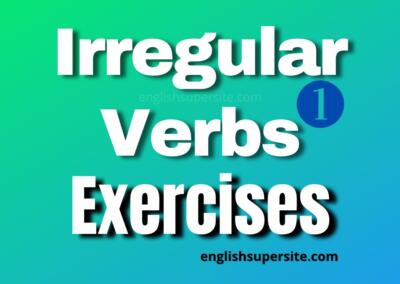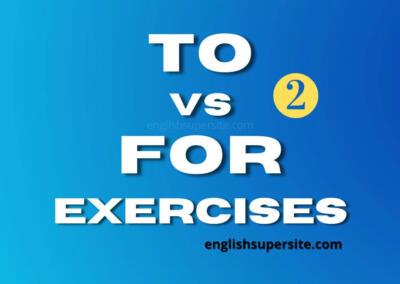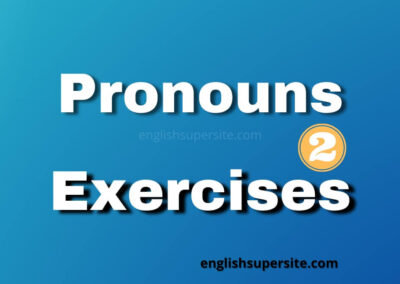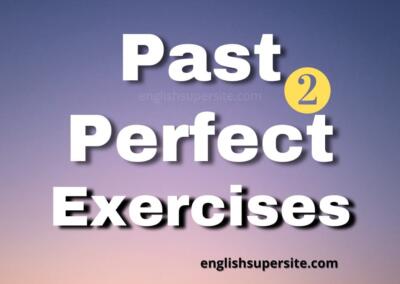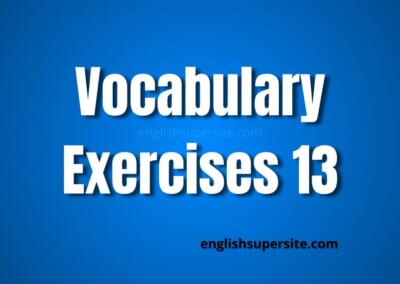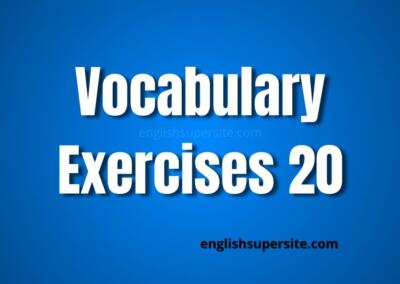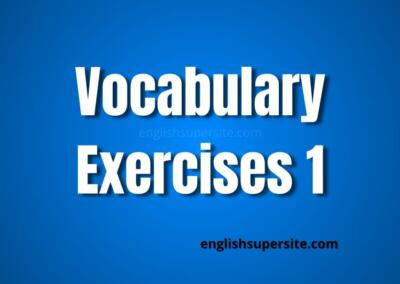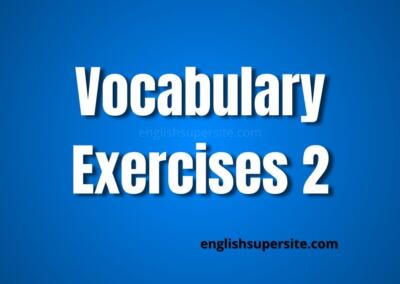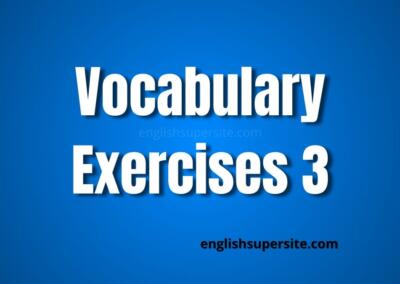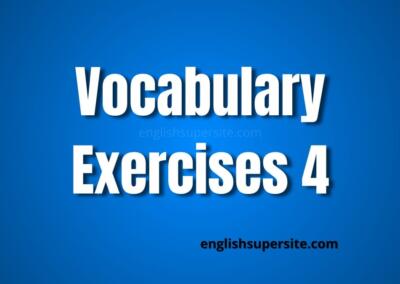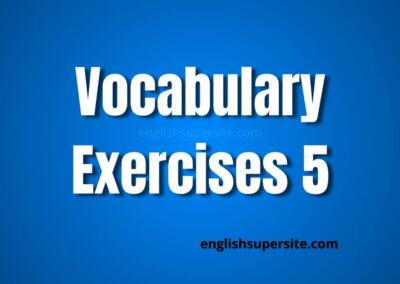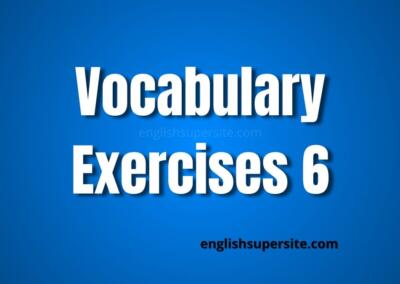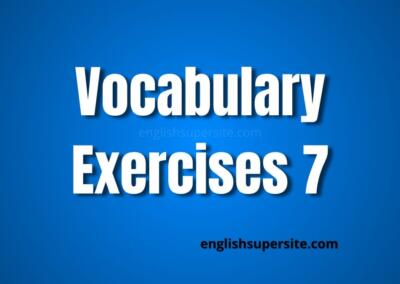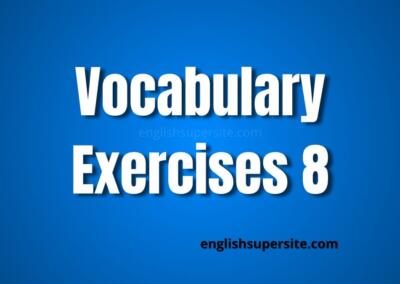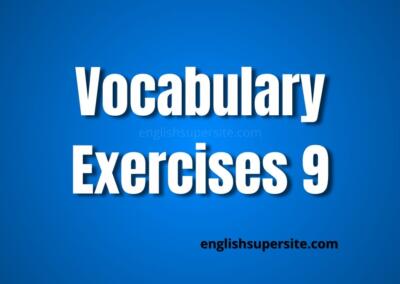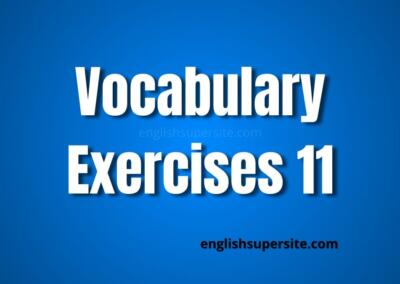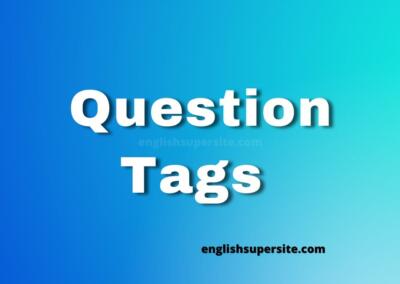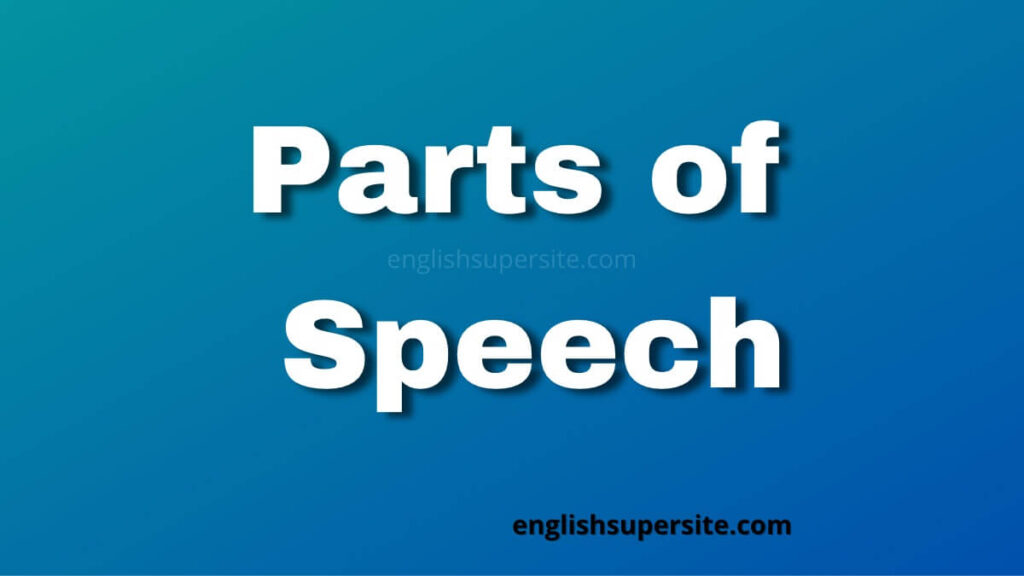
Parts of Speech in the English Language
Learn here the basics of English Grammar. Parts of Speech will become the overall framework of your language knowledge and will help you understand how the language is structured.
In order to build your basic grammar foundation it is very important to become familiar with the name of each part of speech and to expand your knowledge about each one of them.
A part of speech is a category of words that have similar properties. Many English words can belong to more than one part of speech.
There are 8 Parts of Speech
*Commonly, articles are classified under nouns.
Words are the building blocks of your communications, take some time to read and understand how they are classified and how they are applicable in your daily life.
Nouns
A noun is a word that functions to name a person, place, thing, or idea. Please note that when you are studying the Parts of Speech in English, articles are usually under nouns because they often refer to nouns.
Nouns are divided in 6 groups, but one noun can belong to more than one group:
| Type | Use | Examples |
|---|---|---|
| Common Nouns | General groups, people, animals, places, or things. | school car house building |
| Proper Nouns | Specific people, places, or things. The first letter must be capitalized. | John New York Monday Santa Claus |
| Concrete Nouns | Experienced through our senses: sight, hearing, taste, smell and touch. | apple hamburger orange loud |
| Abstract Nouns | Things that are abstract. | love hate passion jealous |
| Collective Nouns | Groups as a unit. | family band team gang |
| Compound Nouns | Composed of two or more words that can be spelled together or separated. | sunset remote control breakfast mother-in-law |
They can also be classified as masculine, feminine or neuter. Singular or plural. Mass nouns (meat, sugar and cheese), countable nouns (dogs, chair, tables and cars) and uncountable nouns (gold, information work and furniture).
Pronouns
A pronoun substitutes a noun. A pronoun is a word that you use to refer to someone or something when you do not need to use a noun or when it was mentioned before.
The pronoun takes the place of a common noun or a proper noun and it is also used to avoid repetition.
There are different kinds of pronouns:
| Type | Pronoun | Use | Example |
|---|---|---|---|
| Personal Pronouns | I you he she it we you they | To replace words for people, places or things. | I am tall. He is a teacher. |
| Subject Pronouns | I you he she it we you they | Identifies what the sentence is about. | He walks. She talks. They like dogs. |
| Possessive Pronouns | mine yours his hers its ours yours theirs | To show possession. There is no apostrophe. | This book is mine. The car is hers. |
| Object Pronouns | me you him her it us you them | Receives the action of the verb or is used in a prepositional phrase. | The gift is for him. |
| Demonstrative Pronouns | This That These Those | To point out things. | This is my dog. These are my pets. |
| Indefinite Pronouns | Everyone Anyone Someone Anybody Nobody | They do not refer directly to any other word. Most indefinite pronouns express the idea of quantity. | Everyone is home. Nobody wants to go to show. |
Adjectives
Adjectives describe and modify nouns and pronouns. They give you more information about people, places and things.
Adjectives can tell you the following things:
| Type | Examples |
|---|---|
| Quantity (numerical adjective) | one two |
| Opinion / Quality | beautiful ugly |
| Size | small big |
| Shape | curved flat |
| Age | new old |
| Color | blue yellow |
| Origin | Spanish Italian |
| Material | plastic wooden |
| Purpose* | running shoes a frying pan |
*A noun used as an adjective.
Adjectives can also compare two things and all things:
| Adjective | Comparative | Superlative |
|---|---|---|
| large | larger | largest |
| big | bigger | biggest |
| beautiful | more beautiful | most beautiful |
| difficult | more difficult | most difficult |
| good | better | best |
| bad | worse | worst |
Verbs
Verbs are the most fundamental part of speech. They can describe actions, senses and even act as helpers.
Types of Verbs:
| Type | Use | Examples |
|---|---|---|
| Action Verbs | To describe actions. Active agent. | to eat to drink to talk to walk |
| Non-Action Verbs | To tell about states of mind or senses. They do not express physical action. Passive recipient. | to think to look to hear to understand |
| Linking Verbs | A state of being. Mostly used to describe the subject by connecting it to a predicate adjective or predicate noun. They do not describe any direct action taken or controlled by the subject | am is are was were |
| Helping Verbs | They act as helpers of the main verb to express its full meaning, to make a statement, give a command or ask a question. | am, is, are, was, were have, has, had do, does, did can, could will, would may, might |
All Verbs in English can be divided in Regular and Irregular. Most verbs are regular.
We also have the Verb Tenses: Present, Past, Future and Conditional.
Subdivided in Simple, Continuous, Perfect and Perfect Continuous.
Example of Verb Tenses:
| VERB TENSE | Present | Past | Future | Conditional |
|---|---|---|---|---|
| Simple | go(es) | went | will go (going to go) | would go |
| Continuous or Progressive | am/is/are going | was/were going | will be going | would be going |
| Perfect | have/has gone | had gone | will have gone | would have gone |
| Perfect Continuous or Present Progressive | have/has been going | had been going | will have been going | would have been going |
Study Also:
Adverbs
Adverbs act as modifiers. They add to or modify the meaning of verbs.
Adverbs can be classified in five groups:
| Type | Use | Example |
|---|---|---|
| Adverbs of Time | To tell when something happens, happened or will happen. | today yesterday tomorrow now before after soon later |
| Adverbs of Frequency | To tell how frequently something happens, happened or will happen. | always never often sometimes |
| Adverbs of Duration | To tell how long something happens, happened or will happen. | temporarily overnight for three days a very long time for over an hour |
| Adverbs of Location or Place | To tell where something happens, happened or will happen. | above below inside outside here there |
| Adverbs of Manner | To tell how something happens, happened or will happen. They describe the way something is done. | well slowly quickly carefully gently elegantly loudly silently |
| Adverbs of Degree | To tell to what extent something happens, happened or will happen. | fully totally completely nearly almost |
| Adverbs of Emphasis | To emphasise something. | really very too just quite |
Prepositions
Prepositions are words that express a connection between other words, they show a relationship in a sentence. They have only one form, they don’t take a plural, a possessive, an inflection, or any other thing.
Prepositions can express:
| Type | Use | Examples |
|---|---|---|
| Prepositions of Time | To express an event in time or time shown on a clock. | in on at |
| Prepostions of Location or Place | To describe a location or a place of someone or something. | in on at |
| Prepostitions of Direction or Movement | To express direction or movement or someone or something. | into out of across |
- Here you can study and learn more about IN – ON – AT
- Here you can study and learn more about TO vs FOR
Conjunctions
Conjunctions are words used to link words, phrases or independent clauses.They can also be used to contrast or compare parts of a sentence or express subordinative clause.
| Type | Use | Examples |
|---|---|---|
| Coordinating Conjunctions | To link words, phrases or independent clauses. | and or nor but so |
| Correlative Conjunctions | To contrast or compare equal parts of a sentence. | both / and not only / but also either / or neither / nor |
| Subordinating Conjunctions | To express a subordinative clause. | although even if unless |
Although Conjunctions are not forbidden to be used at the beginning of a sentence, you should be very carefully not to overdo that when you are writing as it signals a very poor way to express your ideas.
Interjections
Interjections express emotion or surprise. They are often signaled by an exclamation mark or a comma.
| Use | Examples |
|---|---|
| To express mood emotions and feelings. Like surprise, pleasure, disappointment or pain. | Wow! That is great news. What! Why you never told me that? Ouch! That hurts. |
| To express YES or NO. | Yes! I knew you were going to pass the test. Nope! That is not it. |
| To interrupt a thought or a conversation. | Well, I didn’t know you would feel that way. I’m, uh, so embarrassed to tell you that. |
Study Also:
Abbreviations Cohesion and Coherence Collocations Comparative Conditionals Frequent Errors Future Continuous Future Perfect Future Perfect Continuous Future Simple Homonyms Interjections Journaling Learn English Linking Words Logical Flow Past Continuous Past Perfect Past Perfect Continuous Past Simple Plural Present Continuous Present Perfect Present Perfect Continuous Present Simple Pronunciation Question Tags Quiz Quotes Simple Future Simple Past Simple Present Spelling Superlative Transition Words
Share with your friends!

